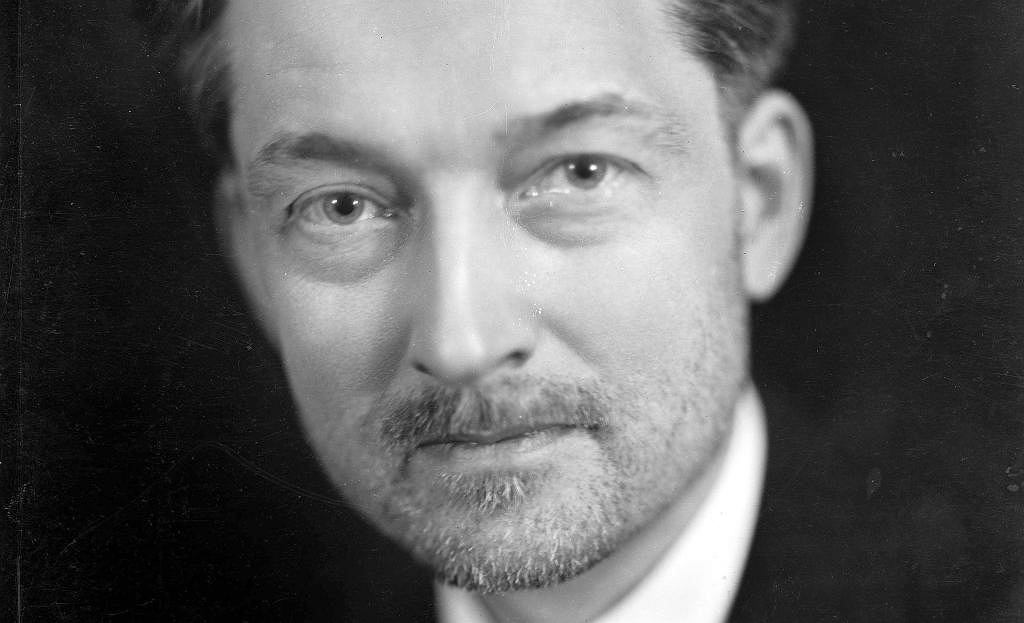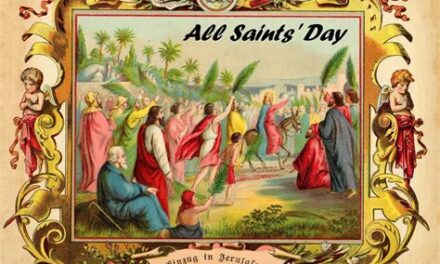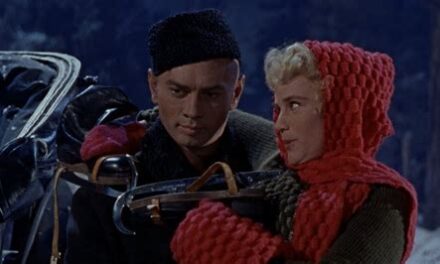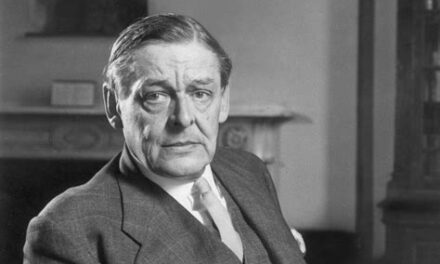The final step in the development of Maritain’s aesthetics is his idea of “creative intuition.” It is the culmination of Maritain’s attempt to liberate artistic intelligence and to preserve artistic freedom. The creative intuition also answers the long-standing question of how knowledge can be oriented entirely toward making and still be considered knowledge. Maritain’s original intention to locate the “spiritual conditions for honest work” is now fully realized: the creative intuition frees the artist inwardly toward his intellect and outwardly toward his work.
No longer content with a simple distinction between the speculative and practical intellects, Maritain goes on to specify the kind of “intellectual” act underlying the virtue of art. Thus, his two masterworks, Creative Intuition and the Degrees of Knowledge, share the same aim: to demonstrate the primacy of the intellect in all human action and to reestablish the hierarchy and mystery of knowledge.
The intellect has suffered from being portrayed too simply. Descartes ignored the preconscious depths of the intellect by his definition of “the soul by the very act of self-consciousness” (CI 95). Freud committed the opposite error of placing the mind in the grip of dark, irrational forces. Maritain thanks Freud for having brought the unconscious back into theoretical consideration, but distinguished his “spiritual preconscious” from that of Freud. This “automatic or animal” unconscious is, he says, “deaf” to the intellect, a closed determinism based upon the dynamics of instinct and desire (CI 91).
Human beings, for Maritain, are neither angels nor beasts. He sought a way around their modernist either/or by proposing a view of the unconscious that is both free and rational. He rightfully insists that his idea of creative intuition implies a “whole philosophy of man” (CI 91). Does any twentieth-century philosopher go further than Maritain in defending the nature of man as Homo Sapiens? Maritain writes,
“Reason does not only consist of its conscious logical tools and manifestations, nor does the will consist only of its deliberate, conscious determinations. Far beneath the sunlit surface thronged with explicit concepts and judgments, works and expressed resolutions of movements of the will, are the sources of knowledge and creativity, of love and supra-sensuous desires, hidden in the primordial translucid night of the intimate vitality of the soul. Thus it is that we must recognize the existence of an unconscious or preconscious which pertains to the spiritual powers of the human soul and to the inner abyss of personal freedom, and of the personal thirst and striving for knowing and seeing, grasping and expressing” (CI 64).
For Maritain, all human powers proceed from the intelligence that is at the preconscious core of the human soul. Imagination, external sense, concepts and ideas, explicit images, sensation, even the Freudian unconscious — all are empowered by the preconscious according to the Thomistic dictum that the “more perfect powers are the principles or raison d’tre of others” (CI 107). Everything human is, as it were, literally drenched with intelligence, though not necessarily in the service of “conceptual” reason.
The creative intuition arises out of what Maritain calls “the free creativity of the spirit” (CI 112) possessing a unique freedom from the demands of logic, science, and morality. Once again Maritain argues analogically, connecting creative intuition with divine ideas. God’s ideas are creative: what he thinks and wills is made. The difference between God, “the First Poet,” and the artist is that God’s poetry is not dependent upon things, since he knows everything entirely through himself. “Well, it is clear that the poet is a poor god. He does not know himself. And his creative insight miserably depends on the external world” (CI 113).
But what God does absolutely, man can partially accomplish: “In a way similar to that in which divine creation presupposes the knowledge God has of His essence, poetic creation presupposes, as a primary requirement, a grasping, by the poet, or his own subjectivity, in order to create” (CI 113).
Thus, the creative intuition that forms the germ of the work will be imbued and marked by the poet’s own character. Who is more like God than the artist who in continuing creation brings things into reality that reveal himself?
This aspect of Maritain’s aesthetics dances across an unmistakable tightrope. The revelation of the self proves to be the greatest blessing or the greatest curse, at once an invitation into a divine mystery and a goad to egotism. The poetic “I” has the difficult and spiritual task of remaining generous, disinterested, and free, revealing itself only for the sake of the work. “The creative Self,” he says, “is both revealing itself and sacrificing itself, because it is given; it is drawn out of itself in that sort of ecstasy which is creation, it dies in order to live in the work (how humbly and defenselessly)” (CI 144-45; second emphasis mine).
“This tension of ecstasy constitutes the form of Maritain’s aesthetics. It keeps the creative act from feasting on itself and resolves Maritain’s dual concern for the “advent of the self” in modern art with the “disinterested” making of the artist. Another kind of Christian sensibility might have instinctively condemned the “advent of the self” but Maritain sees beyond the “wounds” of modern art into the human subject and its desire to share life. Maritain’s voice is an evangel to the artists, a reminder that their art and its beauty point to God. It is also an evangel to us, an aid in understanding and loving our artists.
Artists, then, cannot escape God. If they turn inwardly, into the subjective dynamics of poetic knowledge, they turn, as Augustine did, toward God. At its deepest level, the human subject can imitate God by loving things into existence. If artists look outwardly, at the beauty of their work or of the world, this beauty is itself a glimpse of God. As in Aquinas, all created effects speak loudly to the human mind of their Cause.”
As much as artists need their interior inspiration, they need contact with the world. Human poetry imitates God in its desire to increase the world of things but remains creaturely in requiring more than itself to create. Poetry needs things. Things are the cause of its knowing and the object of its making. Shut poetry off, disallow its connection to sense, corrupt its desire to make, and poetry will whisper to itself it is a god. Poetry, like art, must be consciously linked to God to attain its “essential spirituality” (FP 139).
The shape of Maritain’s aesthetics is consistent throughout the four decades in which he wrote about art, beauty, poetry, and creativity. His aesthetics remain spiritual in substance, ecstatic in form, and evangelical in intent. This inner coherence springs from his early desire to unify culture by referring it to God. Human things may appear diminished by comparison with God, but Maritain believed that such a gesture toward seeming less miraculously opened the door toward becoming more.
“The meaning of a passage quoted earlier can now be fully understood. In 1927 Maritain wrote that there will be hope when you “know yourself so well that you will be able to look at yourself without flinching.” He challenged artists to recognize something much harder to see than their sin — their likeness to God. Though Maritain understands the human impulse to look away from the gravity of a calling by which we are “obliged to do the impossible” (FP 143), he does not pull his punch:
“If you speak with artists, tell them to make haste while they have the light, and to fear Jesus who passes and does not return.”
End of Part Four. End of Essay.














